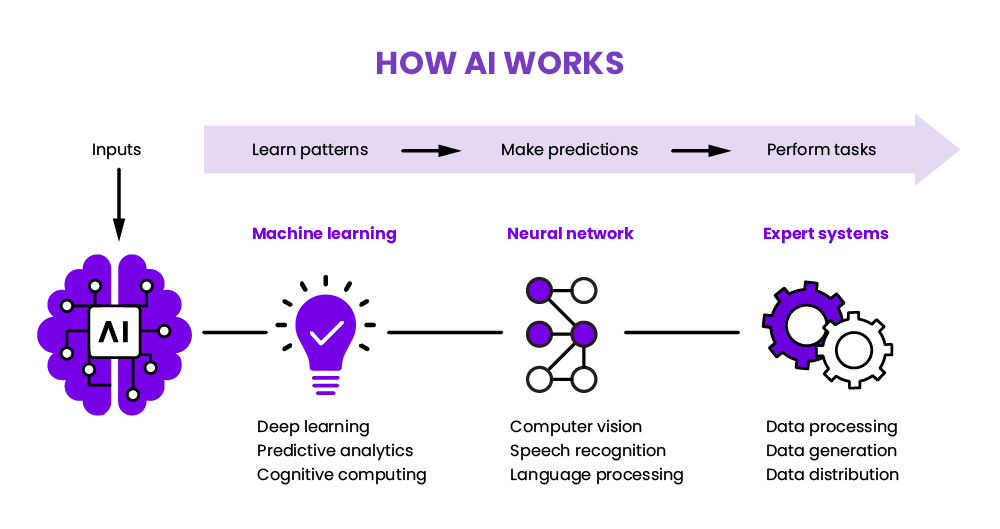Many contemporary businesses are driven by knowledge. They base their operations, the products and services they offer, and, ultimately, their success on the competencies they possess and continuously acquire, validate, and update.
This dynamism isn’t just about the company’s ability to constantly gather, learn, and process new knowledge. It’s also about the rapid evolution and propagation of information and knowledge. What’s important to know today might not have been so yesterday — or may not even have existed — and perhaps won’t be relevant tomorrow. Emerging trends, phenomena, or technologies suddenly appear on markets and just as swiftly disappear or transform in unforeseeable ways.

In today’s context, knowledge is an emergent and unpredictable outcome that arises from collective intelligence through non-linear interactions among various entities, including businesses, universities, innovators, influencers, and more. In a short time, we saw the emergence of chatGPT and the subsequent examination of its impact across various industries due to the rapid growth of AI. Companies quickly recognized its significance. Building knowledge in this area, meant gathering articles, books, and opinions to understand the nuances relevant to one’s specific industry and viewpoint.
Within a multinational company, there’s a wealth of analyses and reports generated by different individuals that could be valuable to their colleagues, even if they’re not in direct contact. Furthermore, this emergent knowledge includes insights gained from the market’s response to government communication campaigns, which communication agencies must be aware of and the lessons learned for future endeavors. This knowledge is collected from various sources distributed over time and space, mainly in digital form.
Innovative Navigation Needs in the Era of Emerging Information
If key information and knowledge are emergent and volatile, their rapid proliferation and constant change require radically new navigation tools. With approximately 2.5 quintillion bytes of data generated every day, we live in a world where the loss of key information is certain. However, decisions need them more than ever.
Companies evolve quickly, driven by emergent actions of individuals, business units, projects, and teams rather than explicit pre-established plans. This emergent knowledge, forming a dynamic map, is vital for aligning different parts of the organization and providing management with real-time insights into the company’s daily operations. In the current landscape, a knowledge-driven business model is highly advantageous. Effectively managing information to generate knowledge is key to overcoming information blindness and overload, with a focus on delivering just-in-time information to decision-makers and employees.

Advantages of a Knowledge-Driven Company
- Enhanced Information Flow: Improved circulation of ideas and information, along with rapid access to resources and faster communication.
- Informed Decision-Making: Swift and well-informed decision-making with the right information at the right time, promoting effective decision processes, collaboration, and innovation.
- Knowledge Reuse: Utilizing existing knowledge stored in database archives and sharing prior real-world experiences.
- Effective Onboarding: Streamlined onboarding processes for new team members, projects, or the organization itself.
A significant portion of organizational performance relies on the availability and usability of knowledge. So, how can you achieve this? Efficient knowledge management is a multi-step process:
- Continuous Monitoring: Regularly track information sources within and outside the company to generate emergent knowledge.
- Personalization: Tailor information to the specific needs of individuals, teams, and the company.
- Match Data with Needs: Align valuable information with specific informational needs.
- Proactive Dissemination: Ensure knowledge reaches the right people without them needing to actively search for it, preventing important information from being overlooked or hidden due to the nature of emergent knowledge.
- Encourage Use and Feedback: Promote knowledge usage and collect feedback to improve profiles and learning patterns.
- Management Insights: Provide management with tools for insights into emerging topics.
Unlocking Knowledge with Artificial Intelligence
Artificial Intelligence is vital in managing knowledge due to the overwhelming volume and complexity of information, making it difficult for humans to identify correlations and underlying meanings. Several scenarios and implementation methods have emerged, including the following examples we’ve encountered in recent months:
- Extracting and sharing knowledge within organizations, communities, or consortiums using push notifications and engaging user experiences.
- Translating specific and numerical Key Performance Indicators (KPIs) to measure aspects like buzz quantity and quality, relevance, and timeliness of evolving topics.
- Identifying and selecting valuable knowledge from specific domains, such as scientific research, and making it accessible to the industrial ecosystem to facilitate technology transfer, possibly through translation into a more understandable language.
- Enhancing individual pieces of information by adding related knowledge and documents to broaden the overall information available to users.

How Knowledge-Driven Companies Thrive
Of course, these examples are just the tip of the iceberg. The overarching theme is evident: learning, creating, and sharing knowledge improves decision-making, resource allocation, productivity, action, and adaptation to market challenges.
Our advice is to consider making your company a knowledge-based organization. Start small, perhaps within a department or a specific project, and equip yourself with the tools, practices, and mindset to embrace emerging insights and foster a continuous flow of shared knowledge. This is the most valuable asset that unites and propels an organization.
If you’d like to exchange thoughts and experiences on these matters or simply wish to learn more, please don’t hesitate to get in touch with us. We’ll be thrilled to assist you on this knowledge-driven journey.
Chief Growth Officer @ Neodata
-
Dino De Lucahttps://neodatagroup.ai/author/adm_dino/
-
Dino De Lucahttps://neodatagroup.ai/author/adm_dino/
